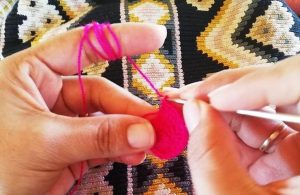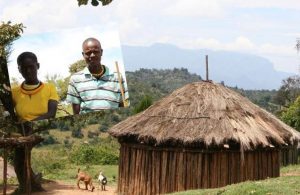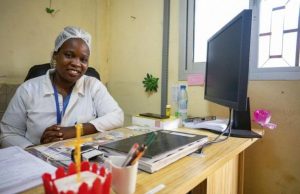Sister Maria José Carrero, a Comboni Sister talks about her experience in the heart of the jungle.
The small town where I live, Santa Maria de Los Cayapas, is located next to the Cayapas River, in the heart of the jungle of Esmeraldas (Ecuador), and can only be accessed by waterway.
You can imagine all of the shades of green and the number of animals of all species that surround me and that awaken in my mind the most sublime idea of God. The nature that surrounds me teaches me to be open to wonder, to welcome the unexpected and, above all, to find the right rhythm of life. In short, it shows me the way to embrace my humanity.
In this paradise I share my life with two communities that survive thanks to the cultivation of cocoa; Afro-descendants and indigenous Chachis. They are marginalized and forgotten by the governments in power, but the Church of Esmeraldas has contributed significantly to the development of the area thanks to our presence as Comboni Missionary sisters – we are currently four missionary sisters – in the area of education and in the formation of leaders.
I am a born dreamer. I dream of a more humane world, more fraternal and with more dignity for all. I believe that I have been put on this earth to give of myself in the service of the people through education. I work in a school with 300 students between the ages of five and twenty, with 17 teachers and the essential support of the students’ families.
Students come here from 13 small towns by canoe or by walking through the jungle, sometimes for more than an hour every day. Now we are gradually recovering normality, but imagine what the Covid-19 pandemic meant for us without access to the internet or electronic devices.
We looked for paper, ink and a photocopier and we got to work making copies of lesson plans and homework and distributed them among the students. Parents were powerless to help their children with their studies due to their low educational level and their occupations.
Neither could the teachers carry out adequate follow-up due to the geographical dispersion and because many families started taking their children out of school and took them to the mountains to work. As time went on, the school dropout rate steadily rose.
I felt that the “educational catastrophe” that Pope Francis spoke of was totally real for us and my heart was breaking with sadness. I asked God in my prayer what we could do. In dialogue with the educational team, we called a meeting with parents, teachers, representatives of the mayor and the health centre, as well as the parish priest.
The proposal was clear: ask the parents to send their children to the classrooms and the teachers to come for two hours a day to continue the classes. This measure was prohibited by the Government, but it was the only viable strategy to continue with the educational process. The proposal was approved by the community because it saw the important role education has in the life of children and their families.
In November 2020 we started the work, risking a complaint by the Ministry of Education that never came and a possible spread of the virus, which did not occur either. What did happen was that all the students returned to school.
Currently, classes have returned to normal. However, regarding the future, 11 antennas have been installed that allow us to have internet. In addition, parents strive to have at least one mobile phone per family. We continue to dream of better-quality education in the area.







